Alison Morgan, author of World Turned Upside Down, shares how she learned to pray in and through creation, in the second of our articles linked to this year’s Festival of Prayer theme, ‘Prayer as a way of life’.
28 May 2023
When, where and how to pray…
When I became a Christian, many years ago now, one of the first things I needed to do was to find out when, where and how to pray. My happy but secular childhood had given me no clues. I remember a single RE lesson (something to do with sand and rock), and I’d been to a church parade service as a Brownie (featuring washing up liquid). At secondary school, RE lessons had covered drugs and strikes, but not faith.
But now I was a Christian. And there are, I discovered, lots of ways to pray. Take a Bible passage and look for a truth, a command and a promise. Read the gospels and allow yourself to be drawn into the story. Pray the Lord’s Prayer, not by reciting it but by seeing it as a set of headings and putting your own words in between. Light a candle and wait in silence. Pray the Jesus prayer – ‘Lord, have mercy on me, a sinner.’ Pray while driving (remembering not to shut your eyes), or while doing the washing up (a great use of time).
I discovered intercessory prayer, listening prayer, contemplative prayer, prayer for healing, and all sorts of other kinds of prayer. ‘There are,’ observes Gerard W. Hughes, ‘as many ways of praying as there are human beings.’[1]
‘At secondary school, RE lessons had covered drugs and strikes, but not faith.’
A conversation
Then it occurred to me that perhaps prayer would, if I allowed it to, come very simply. Prayer, after all, is just a conversation. If we are made in the image of God, ought it not to be natural, with no need for complicated techniques, to have that conversation with God? Maybe in the same way we learn, as infants, to have a conversation with our parents? How do we do that, then, I wondered. It seems to begin with them talking, and us listening; until one day we discover we can say something too – in my case, ‘duck’. Can we approach prayer like that?
At this point I realised that my first conversation with God had happened before I committed my life to him. A friend had died. She was a Christian, and she had died in faith. What’s life all about, I was left wondering. She thought she’d made sense of it – but how do I make sense of it?
I was sitting on a hillside, watching a buzzard soaring on a thermal (by then I’d moved on from ducks). And it suddenly occurred to me that I’d never be able to see the big picture in the way that the buzzard could, because I’m confined to the ground – but that God could see it. And that he was telling me that.
‘I realised that my first conversation with God had happened before I committed my life to him.’
Oh, I thought. Right.
‘In the beginning,’ Genesis announces, ‘God created the heavens and the earth.’ He created them not in a laboratory but in conversation – he spoke them: ‘God said… God said… God said…’ ‘By the word of the Lord the heavens were made,’ explains Psalm 33; ‘he spoke, and it came to be.’
We tend to think of words as marks printed on a page, or sounds produced in the air. But God’s words are far more than that: they are real, tangible and visible – they are the physical manifestation of his thoughts, and they are all around us, tugging at the sleeves of our minds. As Paul points out:
‘Ever since the creation of the world his eternal power and divine nature, invisible though they are, have been understood and seen through the things he has made.’
Romans 1:20
The book of the universe
And so I began to listen to God with my eyes. My first word, ‘duck’, signalled the beginning of a lifelong delight in birds.
And bit by bit I found that God was willing to speak to me through birds. The astounding beauty of a winter starling, an ordinary bird but speckled with a rainbow of iridescent colours – like us, perhaps? The trusting dependence of a rescued baby blue tit, chirping at me in full confidence that I would meet its needs – as God does mine, maybe? The looping flight of a woodpecker, seeking water in a Mendip dewpond during a season of drought – as I can drink of the Holy Spirit during my own times of drought, I realised. ‘Only those who can read and write can read the pages of scripture,’ said Augustine, ‘whereas anyone can read from the book of the universe.’[2]
Quite so, I thought.
I moved on to plants. Huge ones, tiny ones, ones growing in harsh landscapes and ones growing in my own garden. I learned to name them, and felt like Adam, bringing them into being as I did so.
I gazed at the stars, wondering at the immensity of the galaxies dusting the sky in the velvet darkness of the African Rift Valley, and reflected with David on the astonishing power and creativity of God, and the miracle of his concern for me.
I took comfort in the hills rising up behind our house, knowing that those who trust the Lord are like mountains which cannot be shaken.[3]
Wherever I went, whatever I did, it seemed that God was there too, speaking, shouting, whispering to me through the magical words of the created world.
‘Wherever I went, whatever I did, it seemed that God was there too, speaking, shouting, whispering to me through the magical words of the created world.’
Immersed in the Psalms
Over the last few years I have immersed myself in the Psalms, the Bible’s book of prayer. And I find that there too God speaks to the psalmists through the world which surrounds them. Not only that, the psalmists harness the same language to speak back.
That deer threading its way over a rocky hillside – will you guide me like that?
The deep-rooted tree which bears fruit even in times of drought, will you help me become like that?
Those birds which sing by the stream, can you hear my voice singing alongside them?
The strength which you show in flood and storm, will you lend that strength to me?
The difficulties which threaten me like raging lions or venomous snakes – will you rescue me from those?
I feel lonely as that sleepless owl, vulnerable as that dove, strong as that eagle riding the currents of the air – and I know that you are with me as you are with them.
Lord, lend me your words, and speak in me and to me and through me.[4]
For me, the best way of making prayer a way of life, whatever my circumstances, is simply to go for a walk.
‘For me, the best way of making prayer a way of life, whatever my circumstances, is simply to go for a walk.’
[1] God of Surprises (DLT, 1985), p. 40.
[2] In his commentary to Psalm 45.
[3] See Genesis 2:19–20; Psalm 8:3–4; 125:1–2.
[4] See Psalms 18:33; 1; 104:12; 29; 57:4; 58:4; 102:6; 74:19; 103:5.
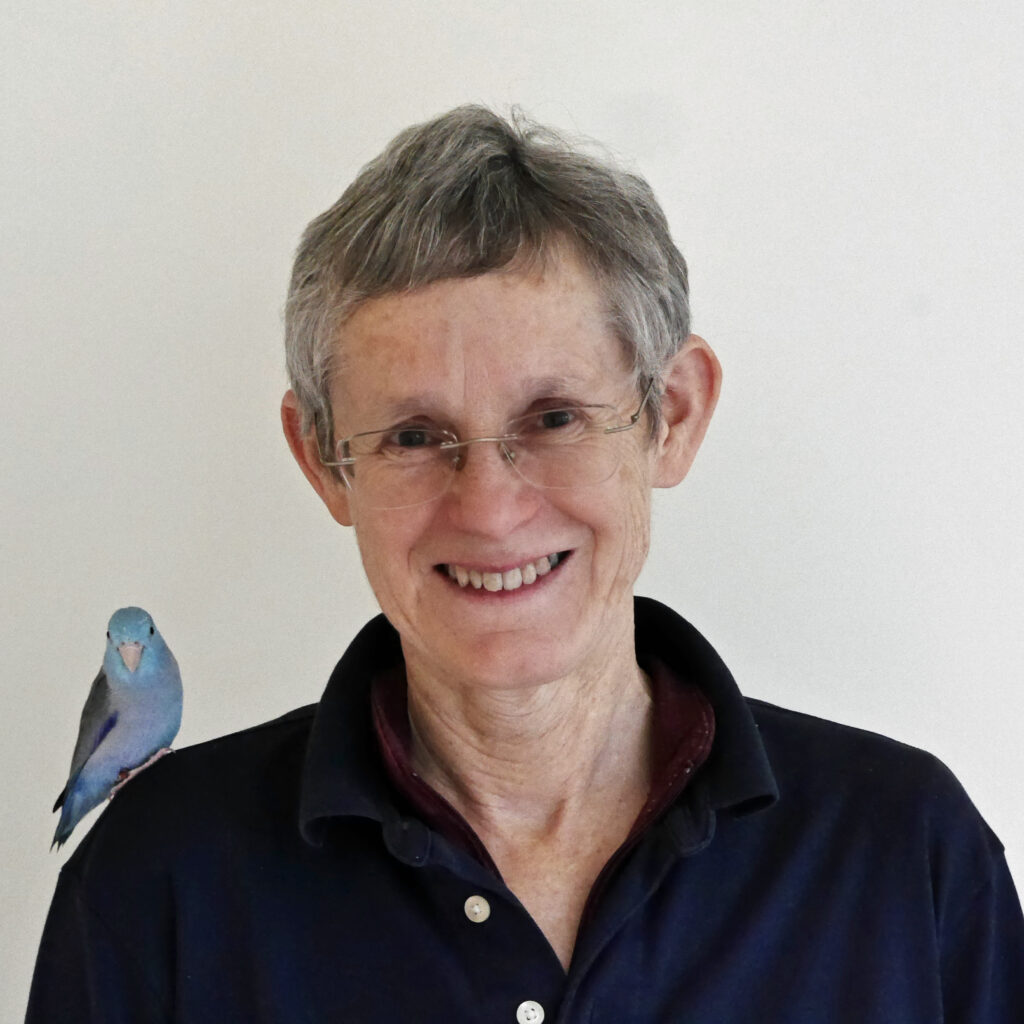
Alison Morgan (pictured with Puffin, her parrotlet) has written widely on literature, theology and the Christian life. She is an associate of the Mathetes Trust, where she oversees the Rooted in Jesus discipleship programme for Africa, now in use in 19 countries. She has a PhD from Cambridge for her work on the Italian poet Dante, and in her spare time enjoys birdwatching, walking and photography.
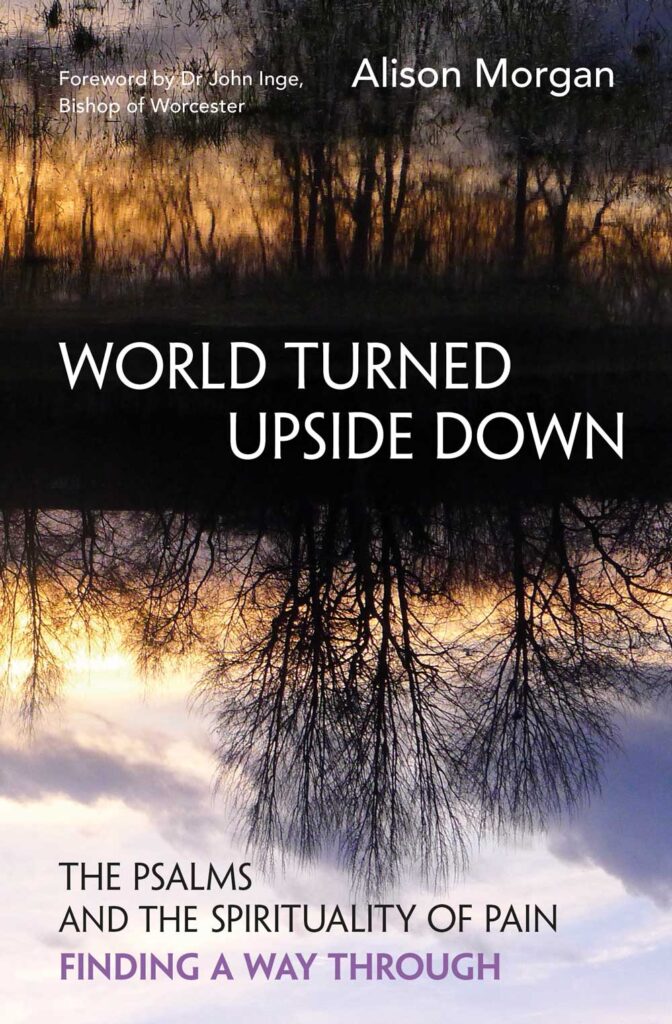
Alison’s book World Turned Upside Down: The Psalms and the spirituality of pain has recently been published by BRF.
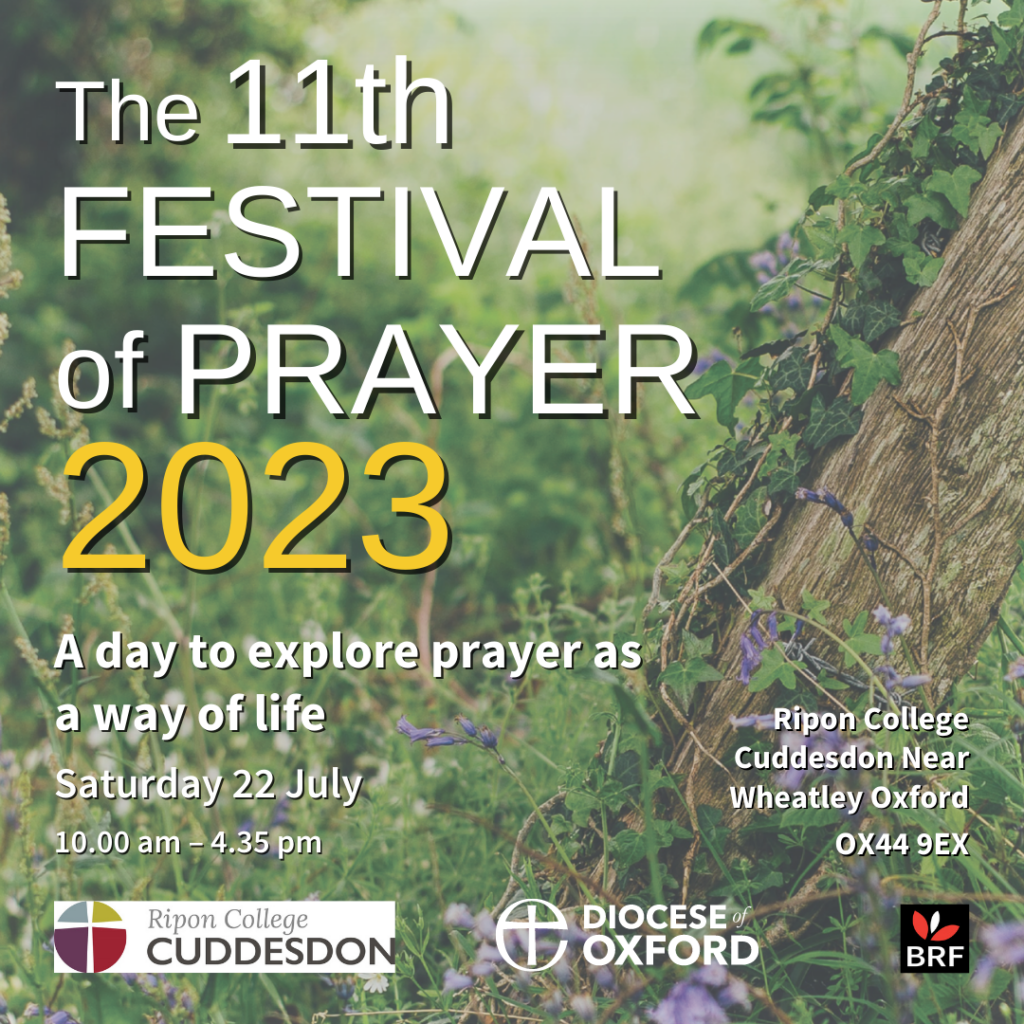
Alison is leading two workshops at this year’s Festival of Prayer on 22 July: ‘Taking the Psalms Outdoors: connecting with God through the things he has made’ and ‘The Psalms and the spirituality of pain: a narrative of healing.’
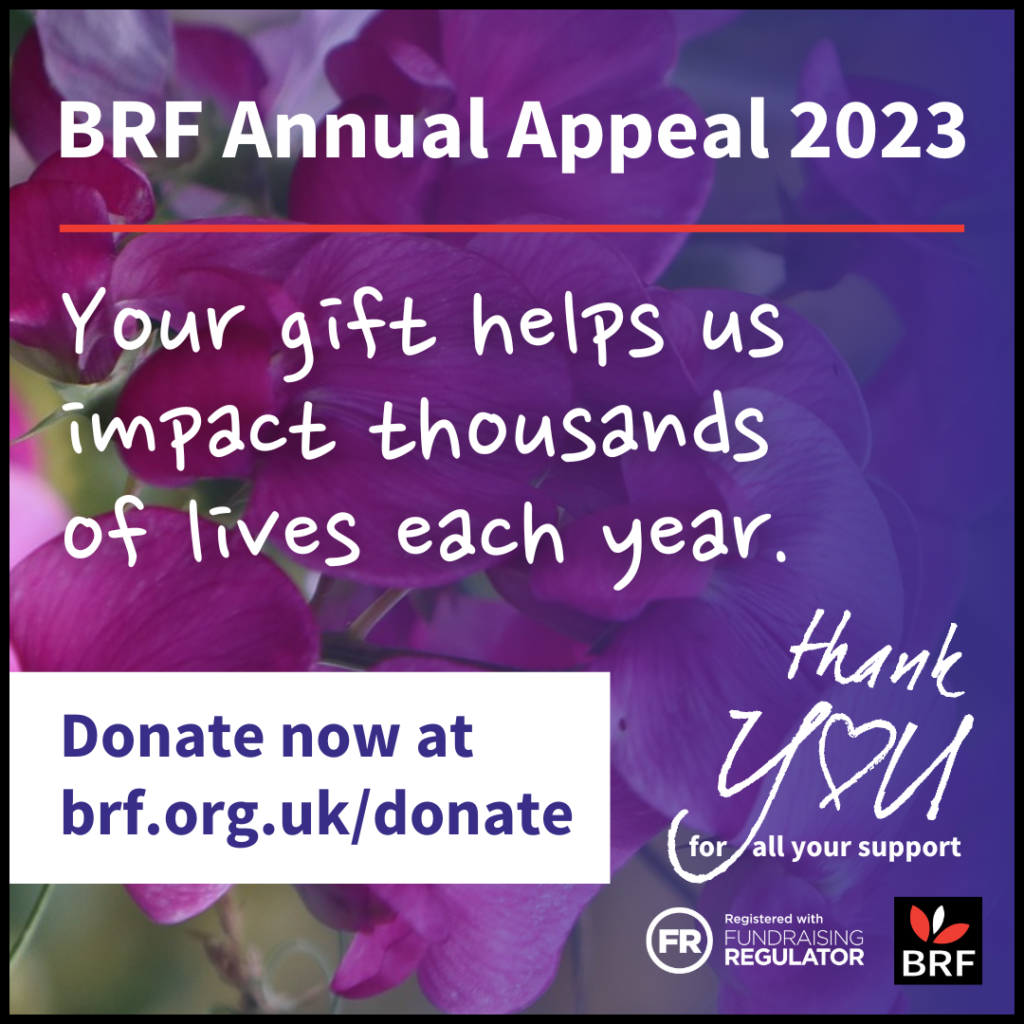
BRF needs you!
Our annual appeal for 2023 has now landed on doormats all around the UK. We’re asking for your support to help us to continue our vital work. BRF is reliant upon fundraising and gifts in wills and every donation of any size will help us to make a huge difference and means we can deliver our mission of inspiring people of all ages to grow in faith.
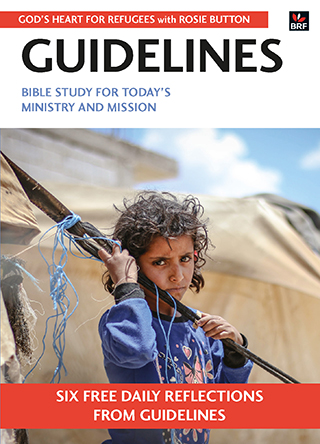
With the number of refugees and displaced people soaring in so many parts of the world, this year’s Refugee Week, 19–25 June, and World Refugee Day on 20 June have a particular significance. Rosie Button has written a compelling series of biblical reflections for our Guidelines Bible study notes, exploring God’s heart for refugees in every age and place, and underlining our Christian duty of care towards them.
We’re making free copies (PDF and print) of Rosie’s series available to individuals, churches and organisations.
